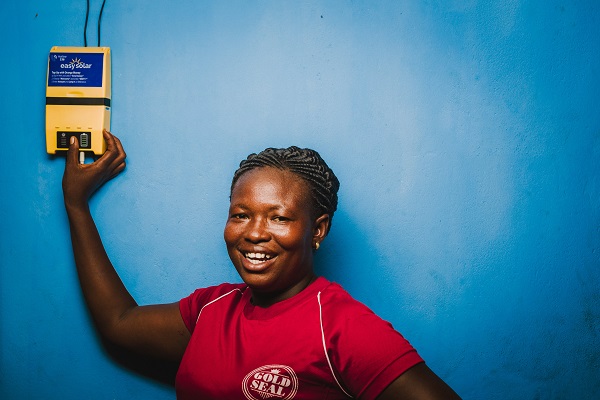Easy Solar, Sierra Leone’s leading provider of accessible and affordable solar products has announced that it has reached a new milestone of 300,000 users nationwide.
“We are thrilled to be making life easier for so many individuals who do not have access to reliable electricity. No one should have to live in the dark.” said Nthabiseng Mosia, co-founder and Director of Customer Experience at Easy Solar.
“Our customers are families and small scale entrepreneurs in urban and rural areas. We believe they should be empowered by electricity, not limited by it.
Our agents and staff are dedicated to improving our customers’ lives and we’re excited to bring a range of even better products like 24 and 32inch TV’s coming in January, as well as small business and agricultural solutions in 2020.”
For more than three years, Easy Solar has been committed to expanding energy access in Sierra Leone. Today, the company remains at the forefront with it’s products powering more than 40,000 households, and shops in 15 out of 16 districts where consumers can access a range of services and products including lanterns, home lighting systems, and appliances, as well as recently introduced fuel-efficient cookstoves.
The company also offers large scale solar and backup power solutions that promise everlasting power and substantial savings to residential and commercial customers using the grid and/or diesel generators.
“The demand for sustainable energy products will continue to grow, and we are excited to be a leader in the industry,” said Eric Silverman, co-founder and Sales & Operations Director.
Over the past couple of years, Easy Solar has tripled the number of customers we serve, created jobs for 500 full-time staff and agents. We have also built partnerships with civil society organizations and development partners to bring much-needed energy relief to schools, clinics, and communities.”


